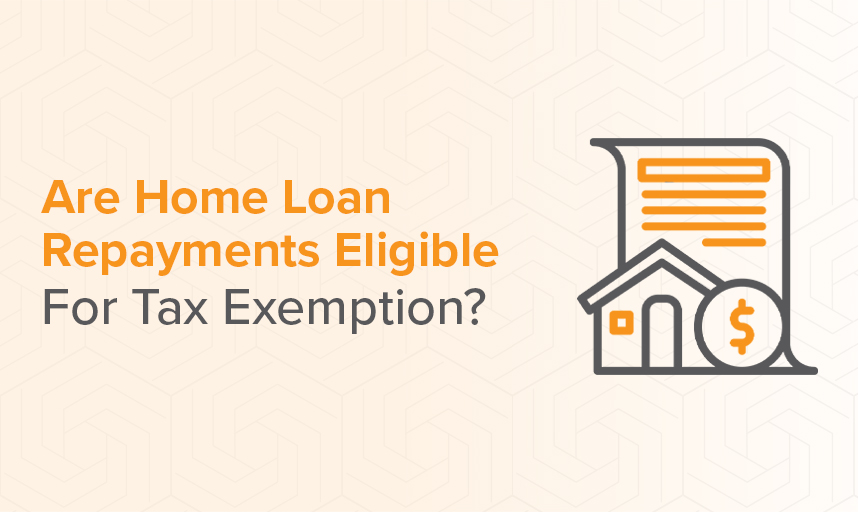You might be able to deduct mortgage interest on your taxes if you itemize and follow a few other guidelines.
Many, or all, of the products featured on this page are from our advertising partners who compensate us when you take certain actions on our website or click to take an action on their website. However, this does not influence our evaluations. Our opinions are our own. Here is a list of our partners and heres how we make money.
If you have a mortgage, keep good records. The interest you’re paying on your home loan could help reduce your tax bill.
How Many Home Loans Are Eligible for Tax Exemption?
The tax rules around home loans and mortgage interest deduction can be confusing. Many homeowners wonder how many of their home loans qualify for tax exemption. The answer depends on several factors.
First to claim mortgage interest deduction, you must itemize deductions on Schedule A of Form 1040. You can’t claim the deduction if you take the standard deduction.
Second, the home loans must be secured debt on your main home or a second home. This means the home serves as collateral for the loan. Unsecured debt like personal loans or credit cards don’t qualify, even if you use the proceeds for home improvements.
Third, both you and the lender must intend for the loan to be repaid. Interest on home equity lines of credit (HELOCs) is only deductible if the funds are used to buy, build, or substantially improve the home securing the loan.
Limits on Home Acquisition Debt
For homes purchased after December 15, 2017, the total home acquisition debt on your main and second home is limited to $750,000 ($375,000 if married filing separately).
Home acquisition debt is debt used to buy, build, or substantially improve your home, secured by that home. It doesn’t include home equity debt.
If you purchased your home before December 15, 2017, your total home acquisition debt limit is $1 million ($500,000 if married filing separately).
Any home loans above these limits aren’t eligible for mortgage interest deduction.
Grandfathered Debt
There’s no limit on grandfathered debt – debt taken out on or before October 13, 1987. So all interest on grandfathered mortgages is deductible.
When you refinance grandfathered debt, the new loan is treated as grandfathered debt up to the balance of the old loan principal. Any amount over that is subject to the home acquisition debt limits.
Mixed-Use Mortgages
For mortgages used for both deductible and nondeductible purposes, you must divide the interest proportionately. For example, if you used $200,000 of a $500,000 refinance to pay off grandfathered debt and $300,000 for an auto loan, you can only deduct 60% of the interest (the portion attributable to the home loan).
Cooperative Housing
If you own shares in a cooperative housing corporation, your deductible interest is your share of the interest paid by the corporation. This is based on your percentage ownership in the co-op.
Itemized Deductions
To recap, the number of home loans eligible for tax exemption depends on:
- Whether you itemize deductions or claim the standard deduction
- Limits on home acquisition debt
- Treatment of grandfathered debt
- How proceeds from mixed-use loans are allocated
- Your share of interest in a housing co-op
So consult with a tax professional to determine your specific situation. With proper planning, you can maximize tax savings on your home loans within the limits permitted by law.

Look in your mailbox for Form 1098
Your mortgage lender should send you a Form 1098 in January or early February. It details how much you paid in mortgage interest and points during the previous year. Your lender sends a copy of that 1098 to the IRS, which will try to match it up to what you report on your tax return.
You will get a Form 1098 if you paid $600 or more of mortgage interest (including points) during the year to the lender. You may also be able to get year-to-date mortgage interest information from your lender’s monthly bank statements.
What is the mortgage interest deduction?
The mortgage interest deduction is a deduction for interest paid on mortgage debt. People who take the standard deduction on their returns cannot take advantage of this tax break because it requires filing Schedule A and itemizing.
Homeowners can find a summary of their mortgage interest payments on Form 1098, which lenders should send out around the end of January.
Tax Benefits on Home Loan Explained | INDmoney
FAQ
How many mortgages can you deduct on taxes?
You can deduct the mortgage interest you paid during the tax year on the first $750,000 of your mortgage debt for your primary home or a second home. If you are married filing separately, the limit drops to $375,000.
What is the maximum housing loan principal exemption limit?
Under Section 80C of the I-T Act, you can claim tax deductions on the principal amount repaid towards your home loan. Additionally, this deduction also applies to registration and stamp duty charges for your property. The maximum housing loan tax exemption under Section 80C is ₹1.5 lakh in a financial year.
What are the IRS tax rules for second homes?
For the IRS to consider a second home a personal residence for the tax year, you need to use the home for more than 14 days or 10% of the days that you rent it out, whichever is greater. So if you rented the house for 40 weeks (280 days), you would need to use the home for more than 28 days.
Can one person claim all mortgage interest if joint purchase?
Can one person claim all mortgage interest if a joint purchase occurred? If you jointly purchased the home but one partner paid for the mortgage interest, they can deduct the interest. The split interest should go on Schedule A, if you itemize your taxes.
